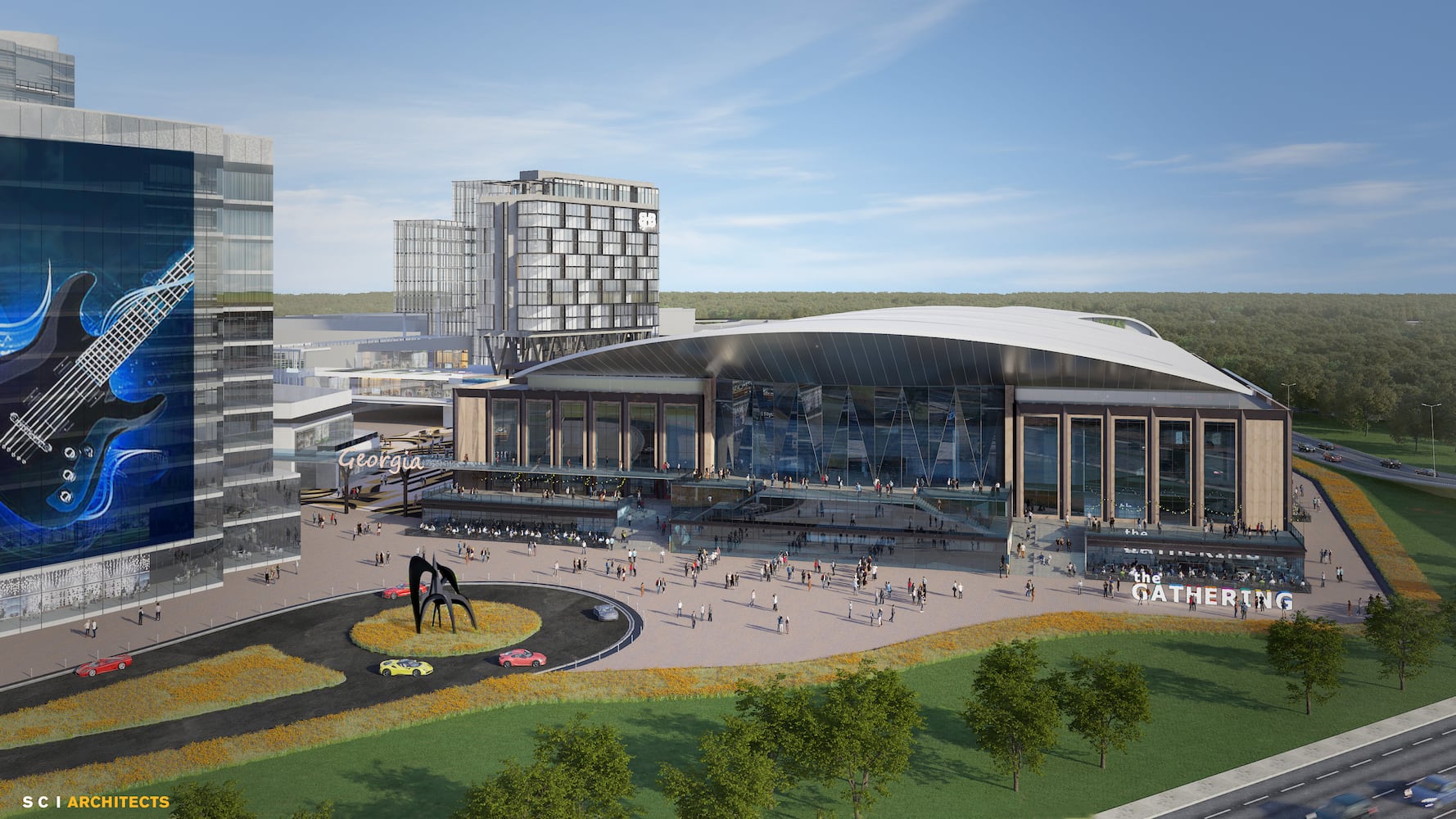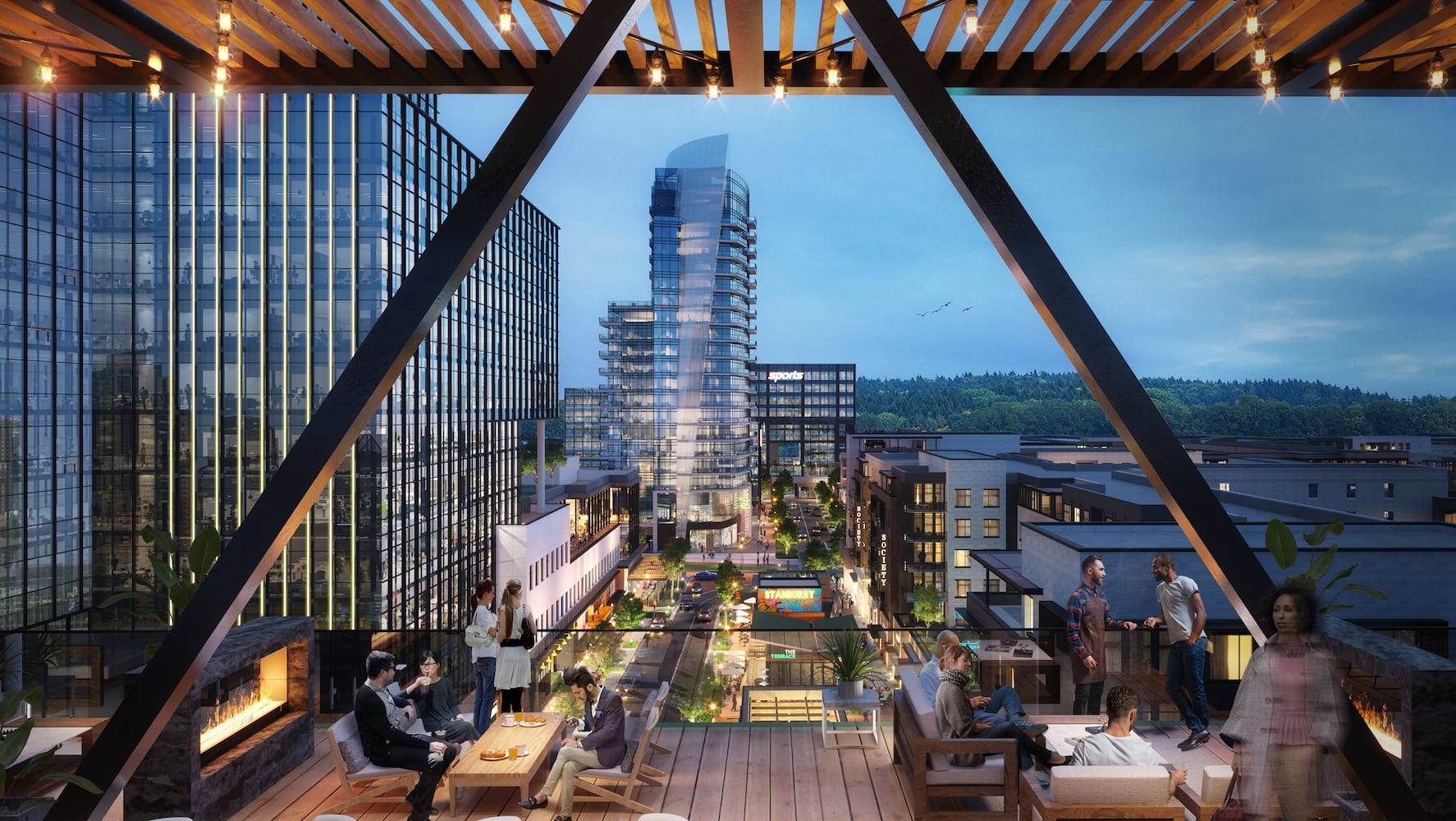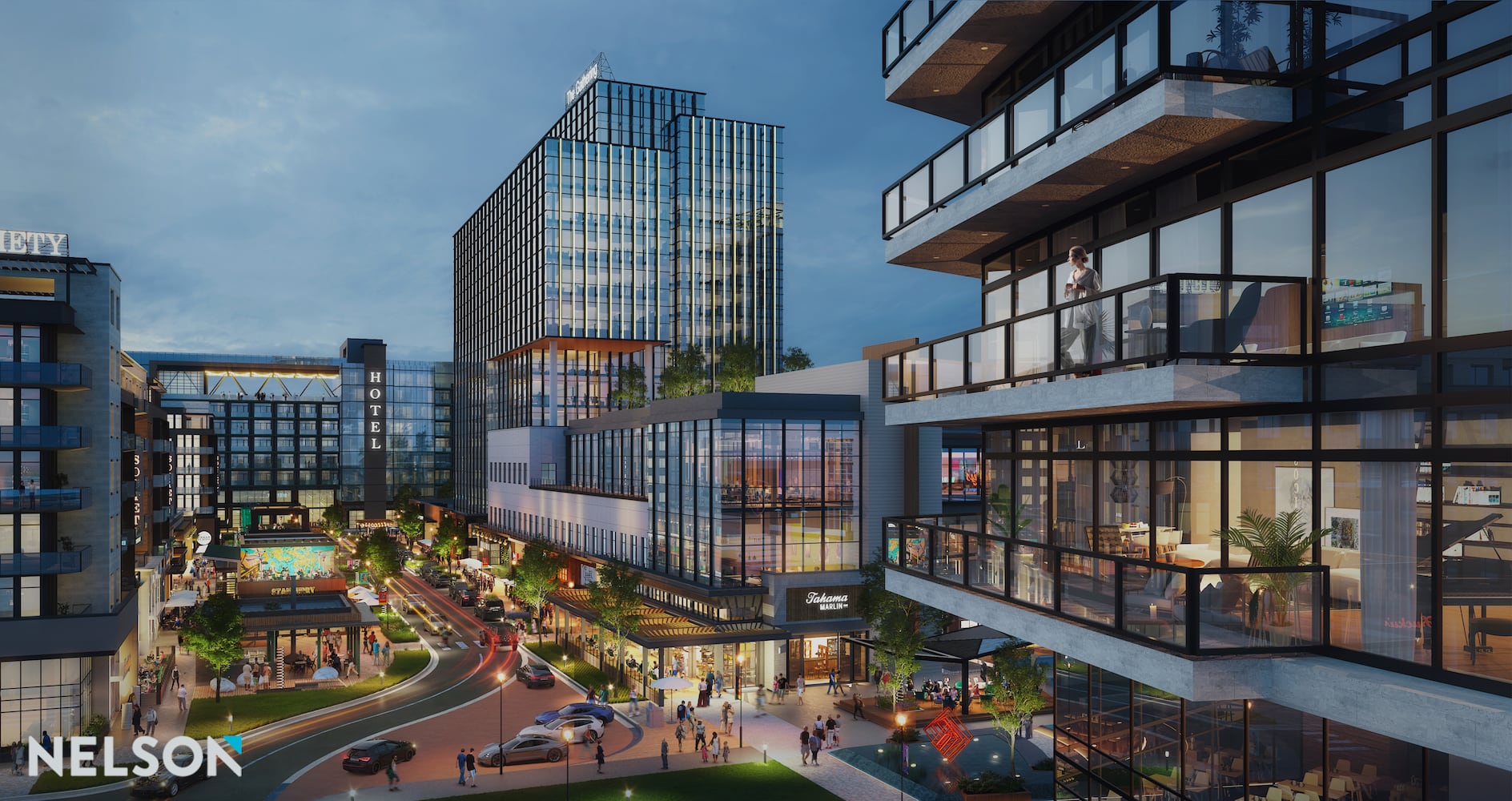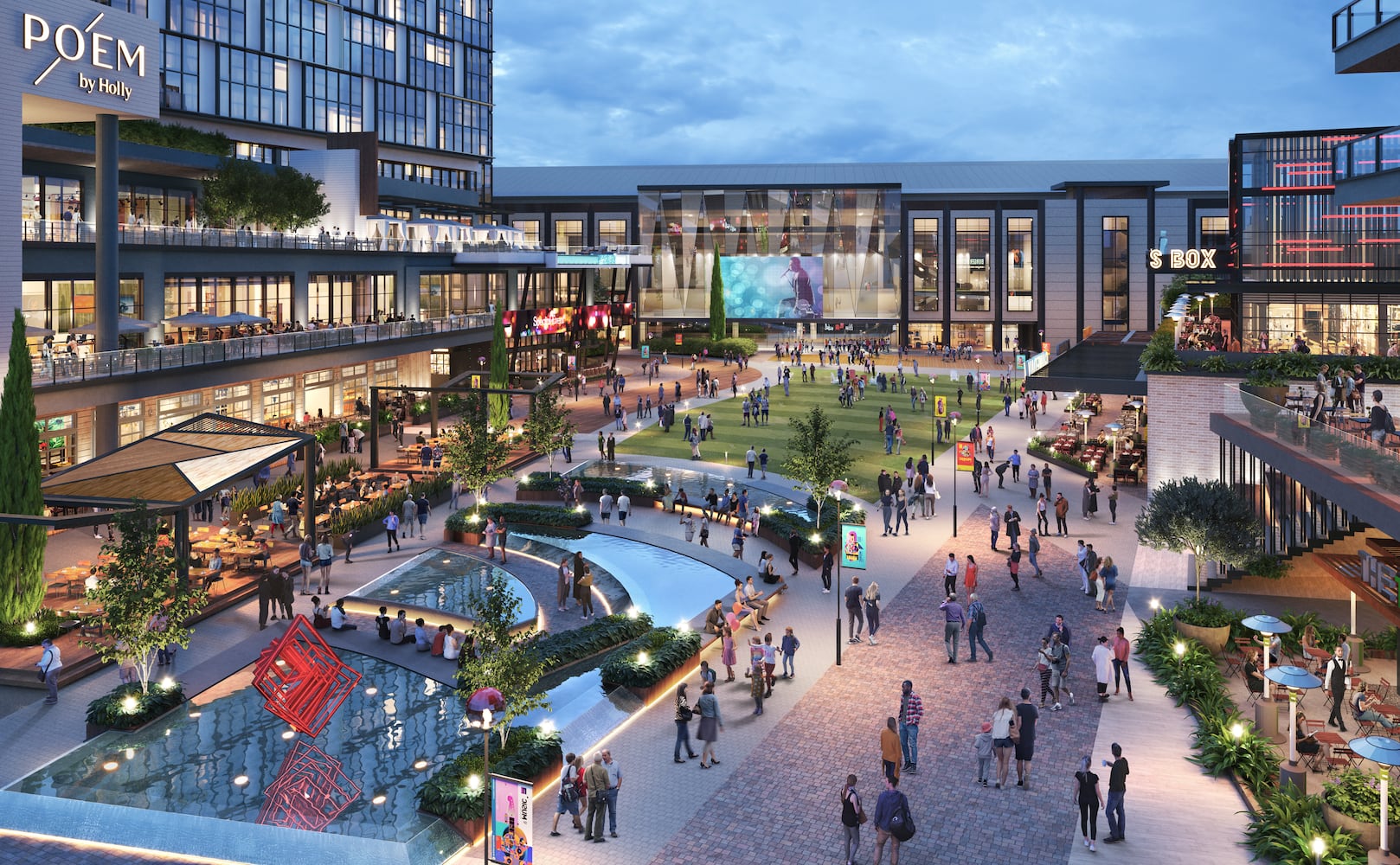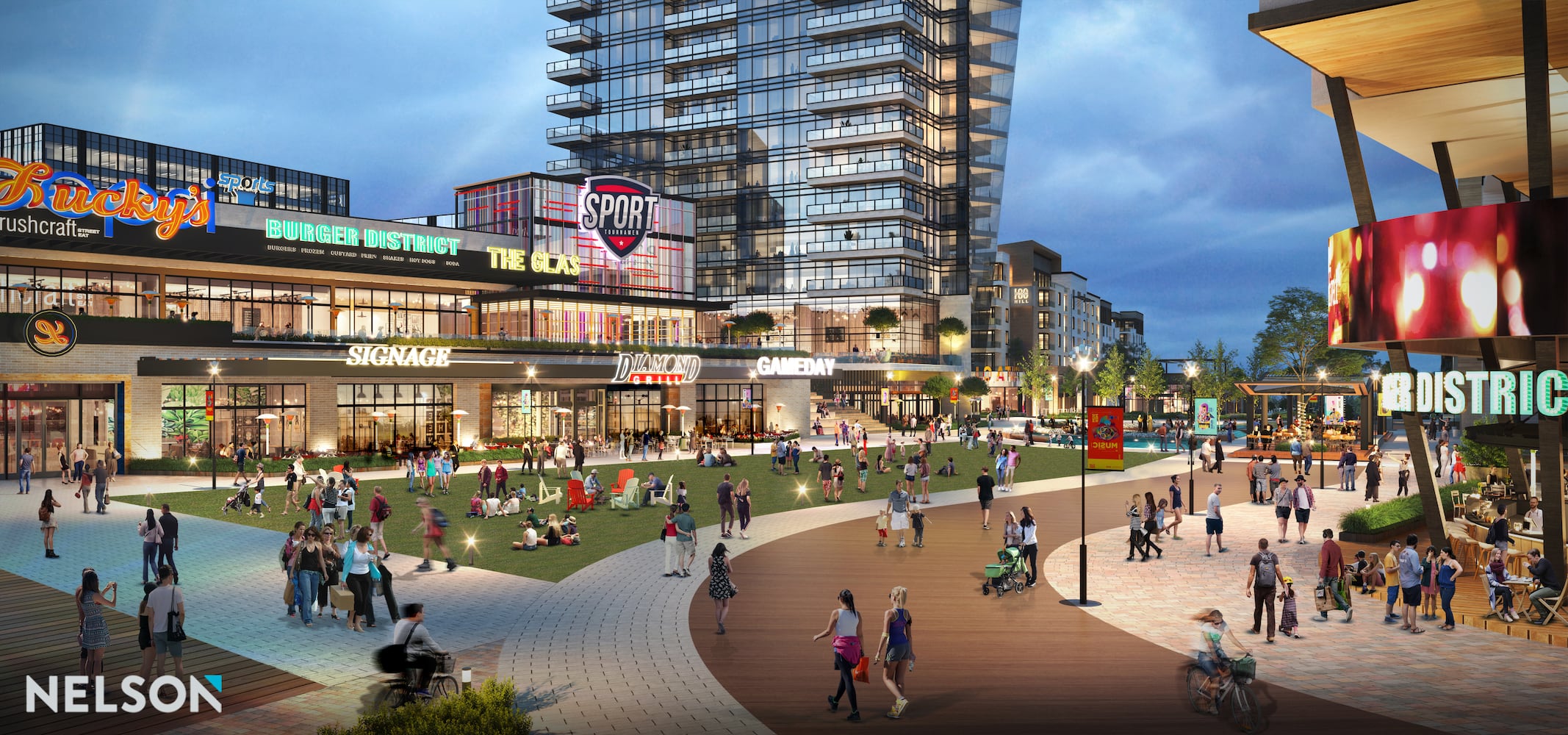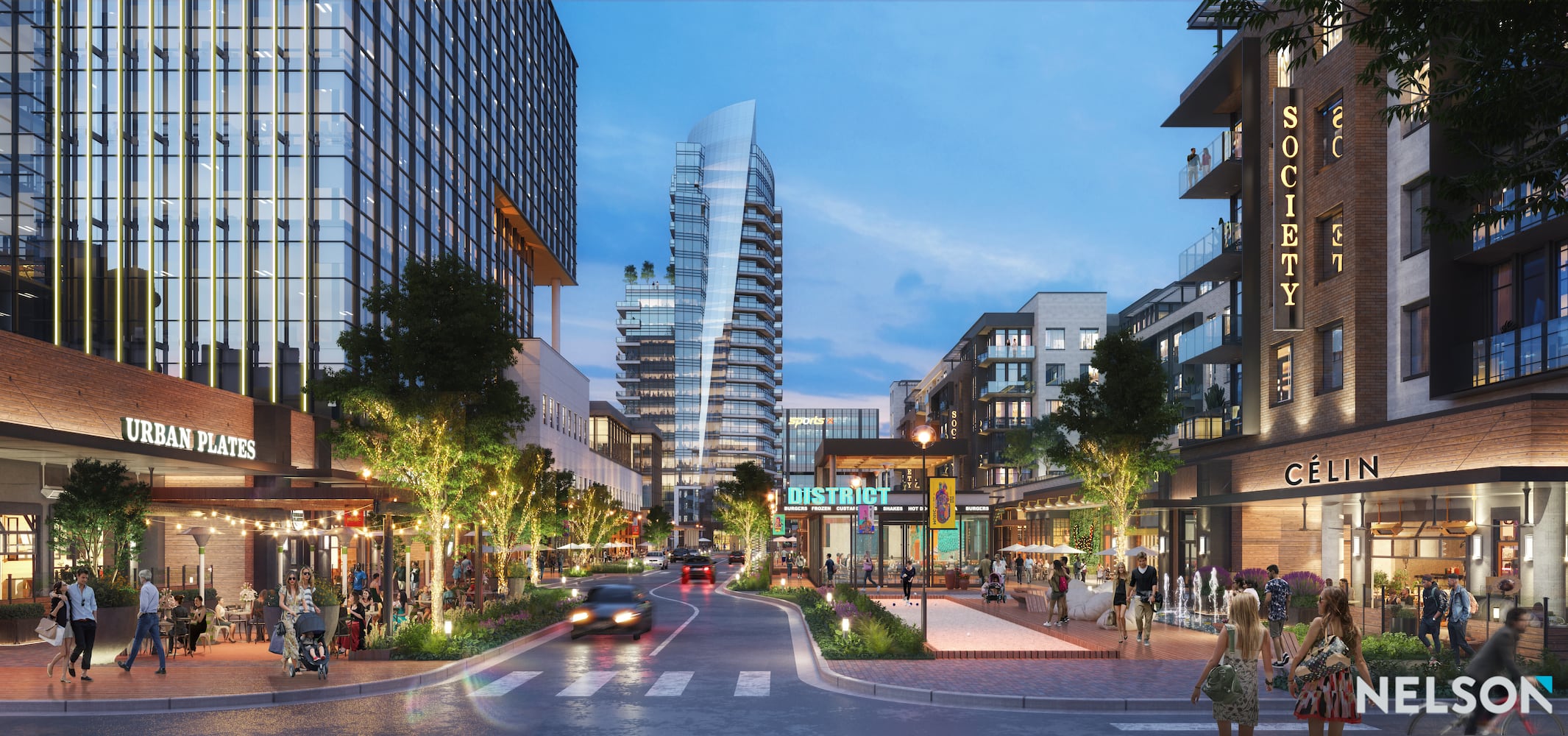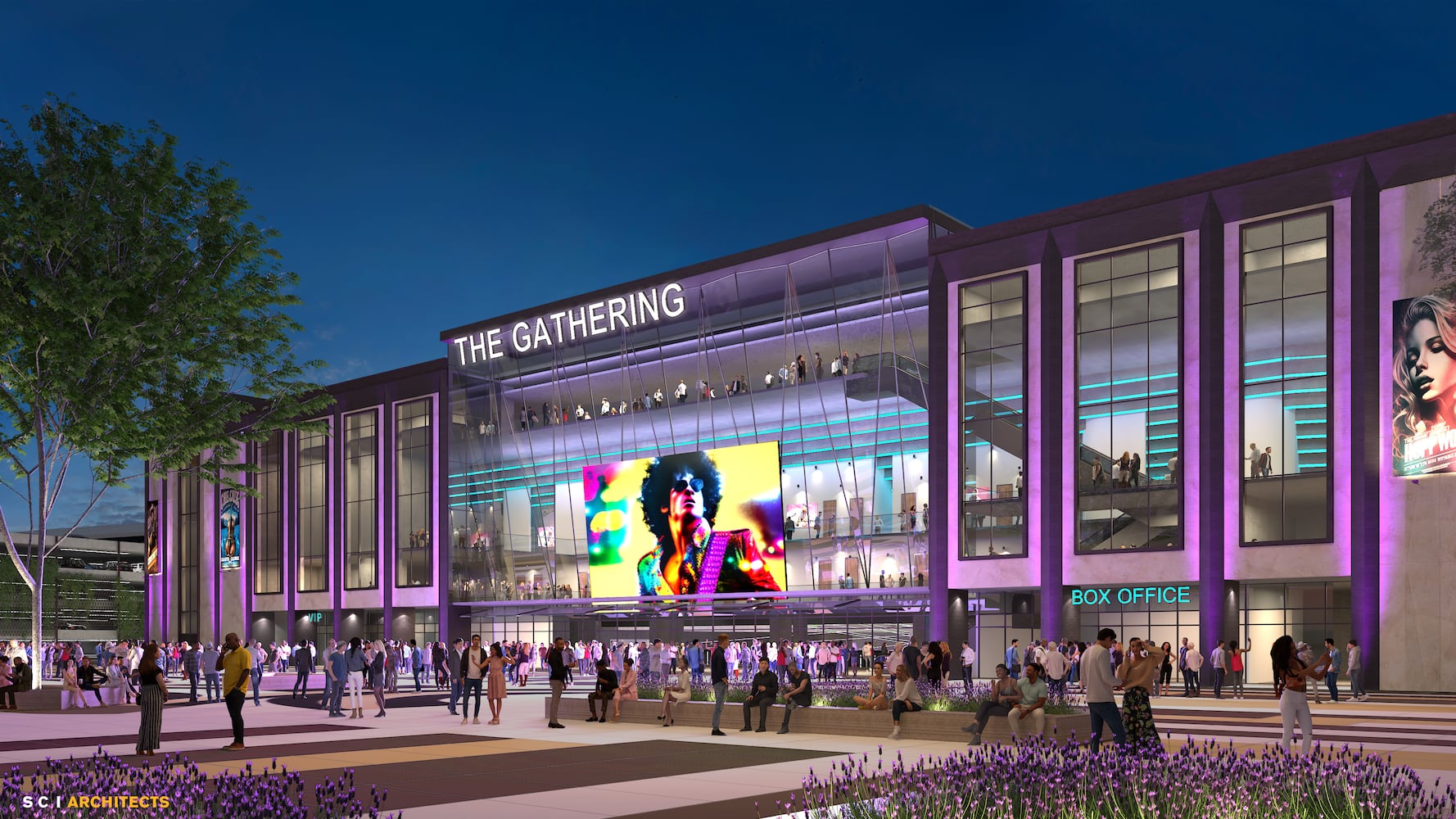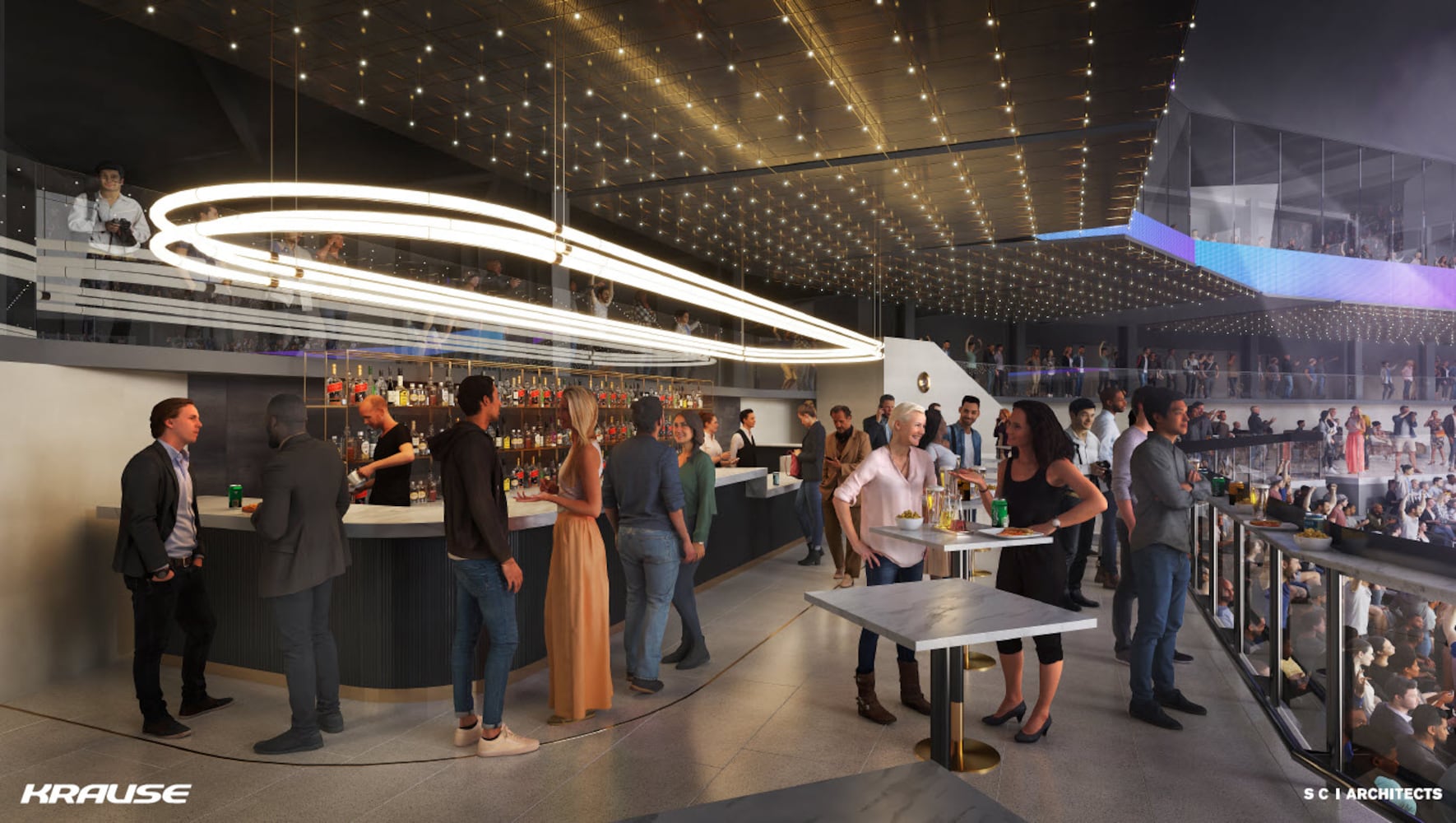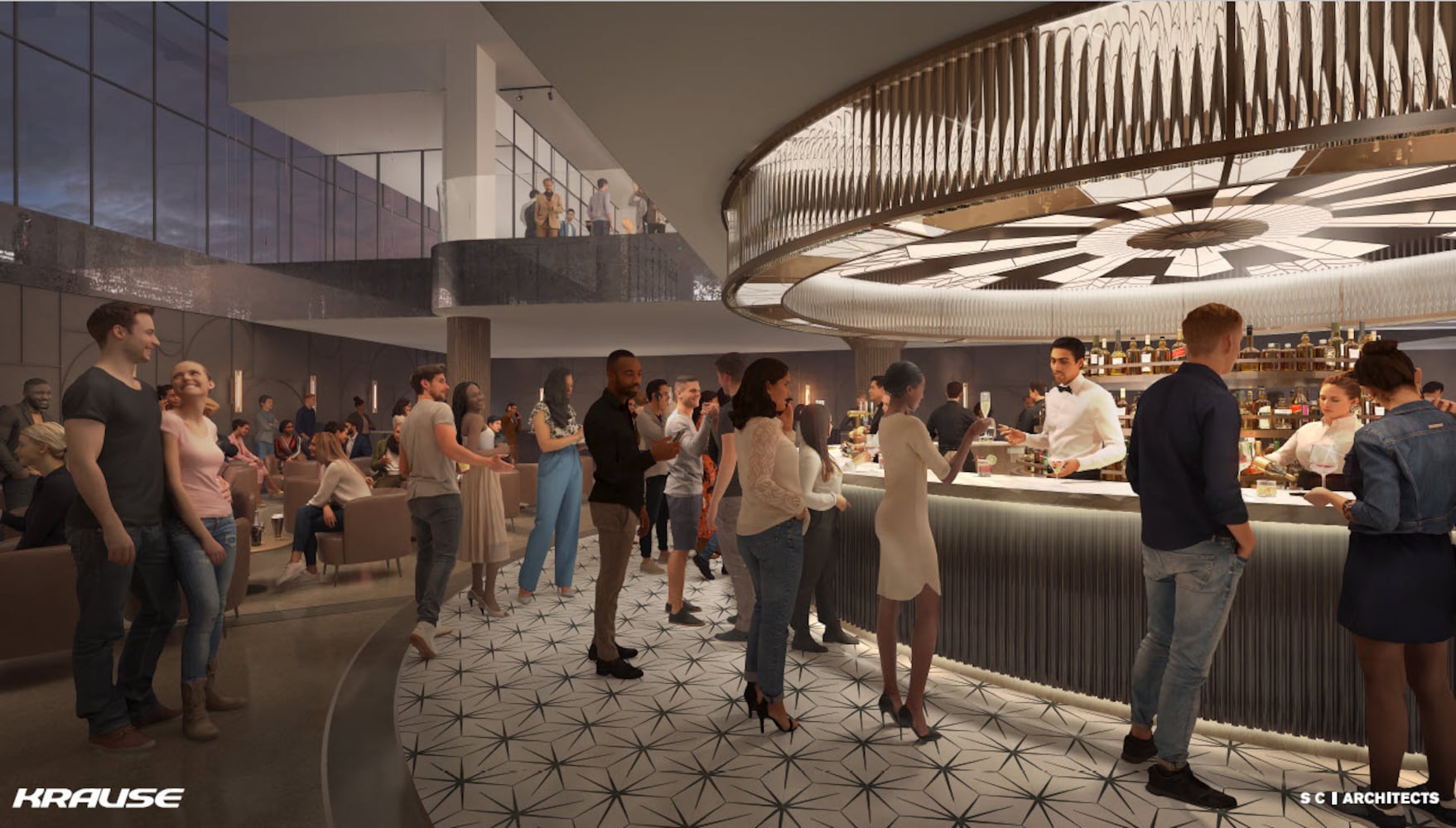Forsyth County leaders formalized negotiations Wednesday that could lead to taxpayers providing nearly $400 million in subsidies to the developer of $2-plus billion hockey arena and mixed-use development, with the caveat that the project lands an NHL expansion franchise.
The county’s board of commissioners voted 4-1 to enter into a non-binding memorandum of understanding with the development team behind The Gathering at South Forsyth, one of metro Atlanta’s largest potential projects. It would also mark yet another request for substantial taxpayer support for a stadium or arena deal in metro Atlanta, following Mercedes-Benz Stadium, Truist Park and the recent renovations to State Farm Arena.
Car dealership magnate Vernon Krause has proposed an 18,700-seat arena, nearly 2,000 residences, 450 hotel rooms, 1.4 million-square-feet of office and retail space and multiple parking decks 30 miles north of downtown Atlanta along Union Hill Road and Ga. 400.
The project, as proposed, would be built across four phases, and fully completed in 2033.
“I could not be more thrilled to take this giant step forward to bring this vision and dream to live for this community,” Krause said in a news release. He went on to say that his family and development team want to create “a gathering place that will cater to diverse interests and provide an unparalleled world-class experience for all.”
Since the project was revealed last April, the Gathering team had declined to talk about potential public funding requests. The team has also stressed in the past that the project’s scale would make sense with or without a professional sports team to anchor the arena that would rival State Farm Arena.
Commissioner Laura Semanson, who represents the area around the Gathering site, said discussions about taxpayer assistance began last summer. Discussions began at $500 million of public assistance, which eventually was negotiated to $390 million.
The NHL is not currently in expansion mode. If Krause and his development team land an NHL franchise, and it’s a big if, it would be the third time the league has attempted to make top level hockey work in metro Atlanta following the departures of the Flames and Thrashers. Past pro hockey misadventures could weigh against another Georgia bid in favor of metro areas like Houston or Salt Lake City that haven’t had their first crack at the NHL.
County Manager David McKee said he and other Forsyth leaders recently met with NHL leadership and toured UBS Arena, home of the New York Islanders. But he said NHL brass have said there’s not an active effort to expand the league’s 32-team roster.
”That’s a decision the NHL will have,” he said.
J.C. Bradbury, an economist at Kennesaw State University, who has studied stadium deals, said that Forsyth is a wealthy and rapidly growing county, but he doubts it is large enough to support a professional hockey team.
”I can’t see the NHL putting a team there,” he said.
Lamar Wakefield, an executive with design firm Nelson and a member of the Gathering team, said it would take more than $1 billion to set up an expansion franchise.
Deal would need local, state OKs
Multiple contingencies are required to make the project financially viable, according to an Ernst & Young analysis. The county would need to chip in $350 million to construct the arena, splitting the costs with the development team. The county also offered $40 million to build a parking deck.
The county also needs both voters and the General Assembly to get on board. The county would need to establish an arena authority and increase its hotel-motel tax collections to 8% from 5%, both of which require state approval. A majority of Forsyth voters would also have to decide to grant the county certain redevelopment powers through a referendum, allowing the county to create a Tax Allocation District.
Without those, the project “becomes extraordinarily challenging and essentially unfeasible,” County Attorney Ken Jarrard said.
The Ernst & Young analysis said the nine-year development period would generate $2.6 billion in economic impact, while the project would create nearly 8,750 permanent jobs.
Experts who analyze stadium and arena deals generally find that they do not live up to the economic and job-creation promises made to win public funding.
“It makes absolutely zero sense,” Bradbury said. “It’s hard to imagine something more fiscally irresponsible than this. Sports arenas are consistently bad public investments in producing returns (for the taxpayer).”
In contrast with Truist Park in Cobb County, Forsyth aims to get a portion of ticket sales for arena events. If the arena is built, the county will receive $1 for every event ticket sold, which will eventually increase to $2.50 after 16 years. A NHL franchise would also have to pay $2 million a year to lease the arena and wouldn’t be able to leave or relocate until all arena-related debt is settled.
Commissioner Cindy Jones Mills voiced concerns that the deal could hurt Forsyth’s credit rating and jeopardize their ability to take on public debt for other projects. The largest bond issuance in the county’s history was $200 million in 2014 for transportation initiatives.
“We can’t look at this in a vacuum or a silo,” she said. “... How do we move forward with a vision for our county’s growth (without) just putting everything in this arena and area?”
Commissioner Semanson called it “a tremendous opportunity” and said Forsyth’s top priority is to mitigate taxpayer risk.
“There are some folks who have concerns, and we have those concerns as well in terms of making sure that this is viable and vetted out and that we’re insulating our public from being on the hook for any of this cost,” she said.
Keep Reading
The Latest
Featured
